Click on the pictures for expansion
and find more links to other biographies at the bottom of this page!
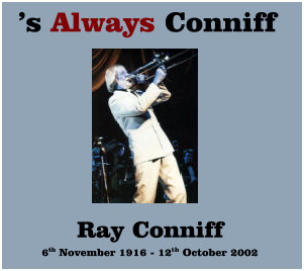
RAY CONNIFF’S SHORT BIOGRAPHY BY VERA CONNIFF (1997)

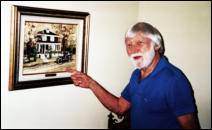
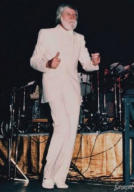
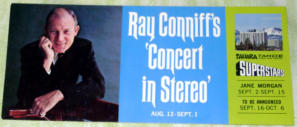
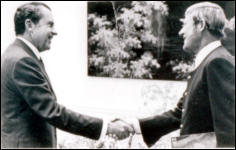
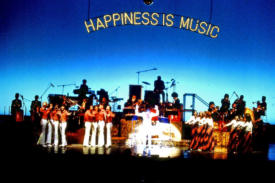
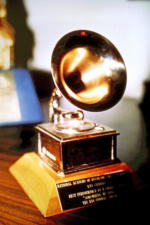
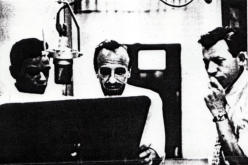
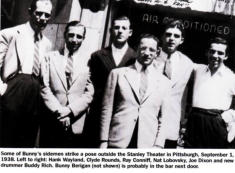

Links to other Ray Conniff biographies (a selection):
•
Musician Guide
•
IMDb
•
Billboard
•
SpaceAgePop
•
Encyclopedia.com
•
Oldies.com
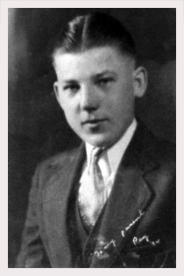
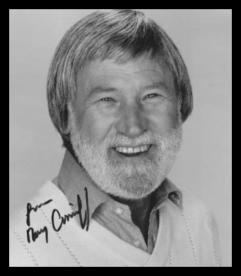

RAY CONNIFF’S SHORT BIOGRAPHY
BY VERA CONNIFF (1997)


Ray Conniff Biography*
Ray Conniff, one of the few commercially successful
musical geniuses of our time, was born on
November 6, 1916, in Attleboro, Massachusetts. Ray
was exposed to music at an early age, his father
was the leader/trombonist of the local Jewelry City
Band and his mother played the piano.
As a junior in Attleboro High School, Ray and some
of his buddies decided to start a dance orchestra.
Taking some musical tips from his father, Ray started
practic-ing trombone and wound up playing first
trombone for the band. It was for this group that Ray
did his first arrangement, his fellow musicians loved
his interpretation of "Sweet Georgia Brown".
Out of high school, Ray got his first professional job
with Dan Murphy's "Musical Skippers" in Boston. He
played trombone, arranged music and drove a panel
truck for the band. When a friend of his told him that
Boston was too small for a talented musician to
make it, Ray headed for the Big Apple.
Ray arrived in New York at the birth of "Swing".
Before finding a steady gig, he sat in with bands in
local clubs and practiced his instrument devoutly.
Opportunity found him and he landed his first paying
job as trombonist/arranger for Bunny Berigan's
band. After a 15 month stint with Berigan, Bob
Crosby hired him away in 1939. Ray played with
Crosby’s "Bobcats" for a year before he joined Artie
Shaw's band. Ray's reputation as an arranger was
growing and his trombone solos were well known.
After Shaw came Glen Gray and then with the
onslaught of World War ll, Ray spent two years with
the United States Army arranging for the Armed
Forces Radio Services in Hollywood. He was
discharged in 1946 and began arranging for Harry
James. When "Be-Bop" hit the musical scene in the
late 40's, Ray, whose musical tastes did not connect
with "Bop", stopped arranging for a while.
This break brought on some hard times for Ray, both
emotionally and financially. During this period, he
taught himself how to conduct, involved himself in an
exhaustive study of hit recordings and developed
what he believed to be a "magic formula" of
arranging.
In the early 50's, the big break in Ray's career
happened when he met Mitch Miller of Columbia
Records, who hired him as an arranger. In 1955,
Ray got his first chance to try out his sure-fire theory
of arranging. The lucky record was Don Cherry's
"Band Of Gold". It became a runaway hit. This
spurned a series of Conniff-arranged Columbia
recording sessions, which resulted in many hit re-
cords. Among them were Johnnie Ray's "Just
Walking In The Rain", Frankie Laine's "Moonlight
Gambler", Guy Mitchell's "Singing The Blues" and
Marty Robbins' "A White Sport Coat". Ray was also
responsible for the brilliant arrangements of Johnny
Mathis' "Chances Are", "Wonderful, Wonderful", and
"It's Not For Me To Say".
Ray's success arranging and conducting for other
recording artists prompted Columbia to let him
record an album under his own name, he was the
first artist to use voices and vocal arranging as part
of the instrumentation, for instance, female or
clarinets; male voices with trombones or saxes in
low register. Ray's debut album "'s Wonderful", was
in the Top 20 for nine months. Cash Box voted Ray
"the most promising up-and-coming band leader of
1957". He won the same award again in 1958. In
1959, Disk Jockeys voted The Ray Conniff
Orchestra and Singers "the most programmed studio
orchestra."
By the early 60's Ray's record sales were booming.
The Ray Conniff Orchestra and Singers were in
great demand. Ray, who prides himself on being
able to produce live in concert the same sound
created on recordings, brought to the public the first
live stereo concert ever to take place in the world.
The audiences experienced the sensation of three
channel stereo being transmitted throughout the
concert hall with the aid of an elaborate stereo
sound system. Critics hailed the concert as the
"musical event of the 60's". Ray presented his
"Concert In Stereo" on US American TV, with
ensuing tours through the USA, Germany, Austria
and Switzerland.
He also played to great acclaim at the Sahara-Tahoe
Hotel in Lake Tahoe and the Sahara Hotel in Las
Vegas. During this time, Ray had the chorus step out
of the orchestra and they gained fame in their own
right, singing the lyrics and they became known as
the "Ray Conniff Singers".
During the 70's Ray performed his new show
"Happiness Is Music" throughout South America,
Japan and England (including the prestigious Royal
Albert Hall in London). He also performed at the
White House during the Vietnam War. In 1974, Ray
was the first pop artist from the West asked to go to
Russia to record an album in Moscow.
Ray, who is now 80* years old, is still recording
approximately one new album a year. He tours
annually through Brazil with his complete orchestra
and chorus and full houses of people of all ages sing
and dance along as he runs up and down the stage
like a 20 year old kid, conducting, singing, talking to
the crowd, playing his trombone - doing what he
does best.
Ray's repertoire includes big band standards,
adaptations of classical themes, songs from the
movies and the Broadway stage and ranges from
top chart hits to Country, and Latin music.
Ray has survived in the music business for over 60
years, he has recorded over 90 albums to date and
has sold over 65 million albums, cassettes and CD's.
He is the proud recipient of a Grammy Award for his
recording of “Somewhere My Love”, two Grammy
nominations, over 10 gold albums, CBS Records -
Best Selling Artist for 1962 Award and countless
international awards. He was also one of the few
artists to receive the prestigious CBS Records
International Crystal Globe Award for outstanding
sales outside of the United States. His catalog sales
have surpassed those of Jimi Hendrix and Led
Zeppelin.
In March of 1997, after 40 years with COLUMBIA
RECORDS/CBS RECORDS/SONY MUSIC, Ray
has signed a new recording contract with PolyGram
Records. He is currently working on two new albums
"Ray Conniff Live In Rio" and "I Love Movies".
THE END - for now...
(*by Vera Conniff, Summer 1997)
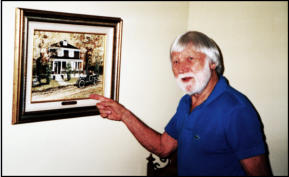
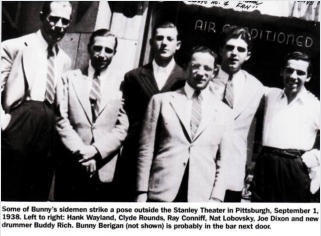
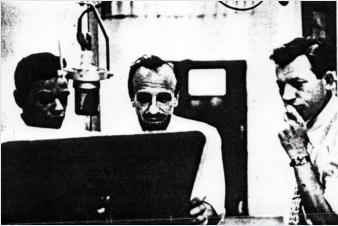
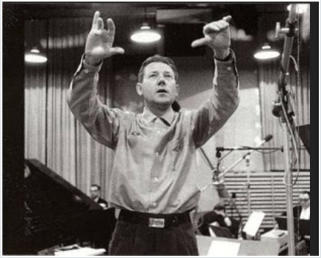
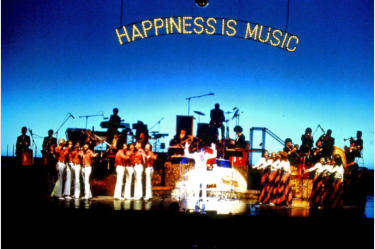
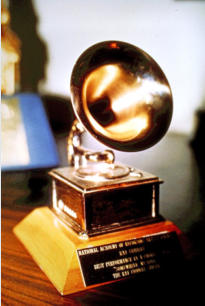
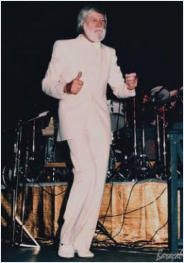
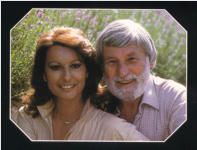
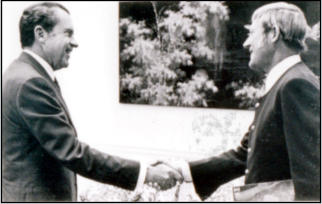
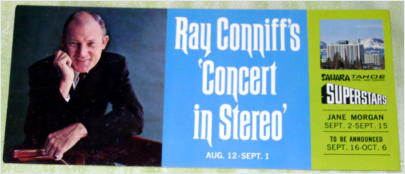
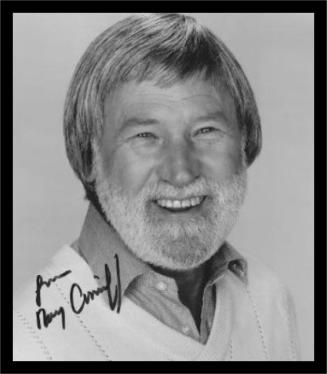
Links to other
Ray Conniff biographies
(a selection):
•
Musician Guide
•
IMDb
•
Billboard
•
SpaceAgePop
•
Encyclopedia.com
•
Oldies.com
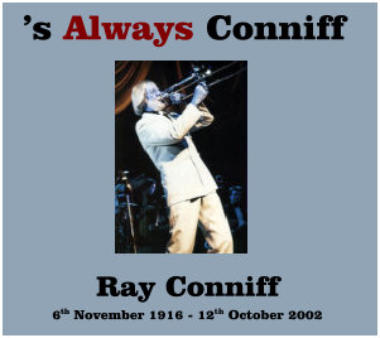
’S WONDERFUL! The Ray Conniff Page
’S WONDERFUL!
The Ray Conniff Page






































